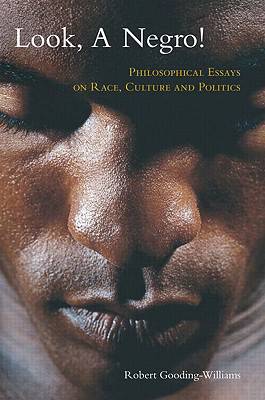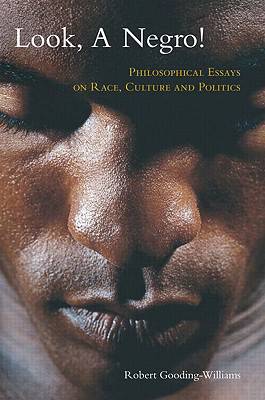
- Afhalen na 1 uur in een winkel met voorraad
- Gratis thuislevering in België vanaf € 30
- Ruim aanbod met 7 miljoen producten
- Afhalen na 1 uur in een winkel met voorraad
- Gratis thuislevering in België vanaf € 30
- Ruim aanbod met 7 miljoen producten
Zoeken
Look, a Negro!
Philosophical Essays on Race, Culture, and Politics
Robert Gooding-Williams
Paperback | Engels
€ 61,45
+ 122 punten
Uitvoering
Omschrijving
In Look, a Negro!, political theorist Robert Gooding-Williams imaginatively and impressively unpacks fundamental questions around race and racism. Inspired by Frantz Fanon's famous description of the profound effect of being singled out by a white child with the words Look, a Negro!, his book is an insightful, rich and unusually wide-ranging work of social criticism. These essays engage themes that have dominated debates on race and racial identity in recent years: the workings of racial ideology (including the interplay of gender and sexuality in the articulation of racial ideology), the viability of social constructionist theories of race, the significance of Afrocentrism and multiculturalism for democracy, the place of black identity in the imagination and articulation of America's inheritance of philosophy, and the conceptualization of African-American politics in post-segregation America. Look, a Negro! will be of interest to philosophers, political theorists, critical race theorists, students of cultural studies and film, and readers concerned with the continuing importance of race-consciousness to democratic culture in the United States.
Specificaties
Betrokkenen
- Auteur(s):
- Uitgeverij:
Inhoud
- Aantal bladzijden:
- 200
- Taal:
- Engels
Eigenschappen
- Productcode (EAN):
- 9780415974165
- Verschijningsdatum:
- 8/12/2005
- Uitvoering:
- Paperback
- Formaat:
- Trade paperback (VS)
- Afmetingen:
- 166 mm x 229 mm
- Gewicht:
- 331 g

Alleen bij Standaard Boekhandel
+ 122 punten op je klantenkaart van Standaard Boekhandel
Beoordelingen
We publiceren alleen reviews die voldoen aan de voorwaarden voor reviews. Bekijk onze voorwaarden voor reviews.










